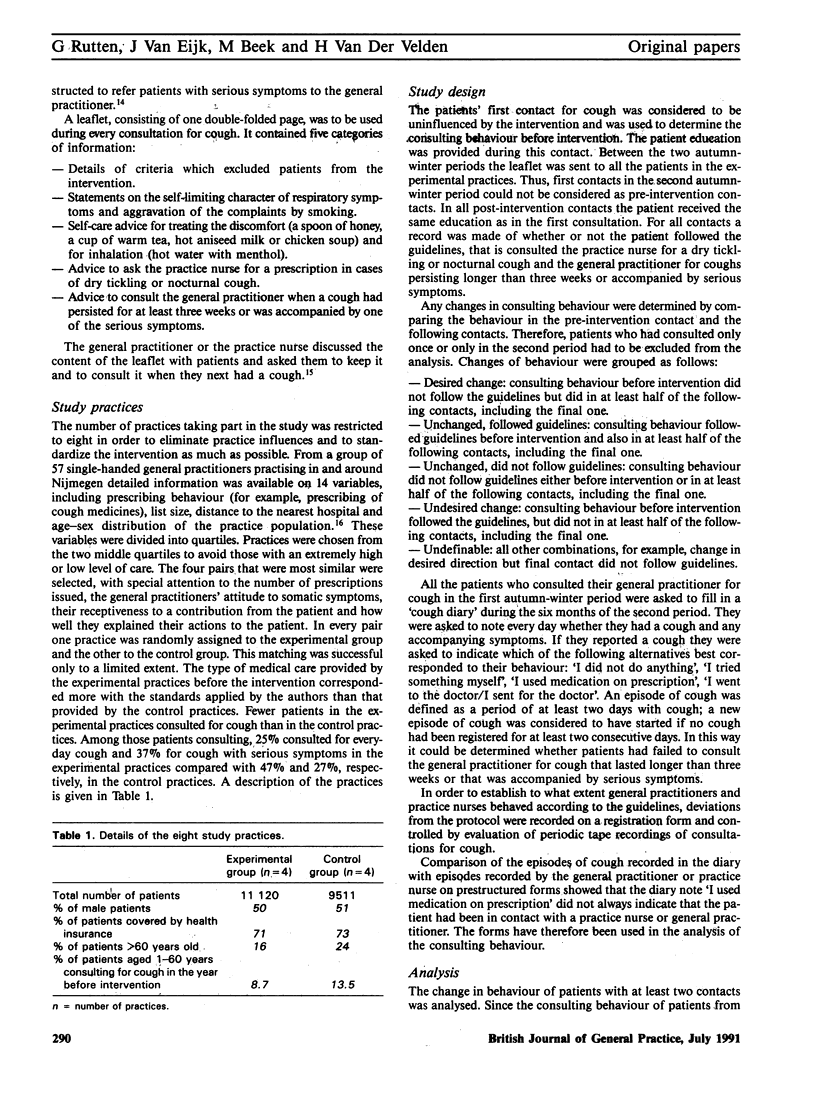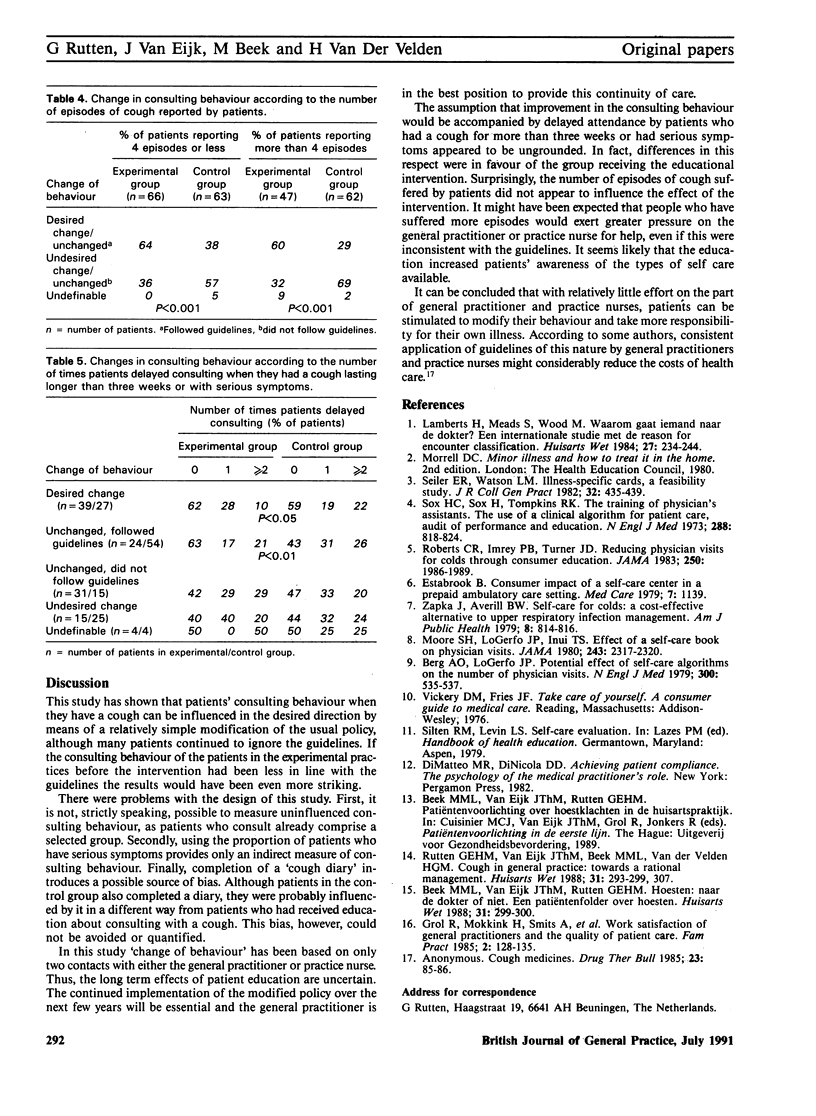Abstract
The aim of this general practice study was to examine how the consulting behaviour of patients with a cough was affected when the tasks and responsibilities of patients, practice nurses and general practitioners were reorganized. In four 'average' single-handed general practices the effects on the consulting behaviour of patients of a rational practice policy on cough and the provision of systematic patient education on cough were compared with patient behaviour in four matched control practices. Changes of behaviour were measured in 548 patients who consulted for cough at least twice, in two successive autumn-winter periods. Significantly more patients in the experimental practice changed their behaviour to follow the practice guidelines than did patients in the control practices (56% versus 30%, P less than 0.001). The proportion of patients who continued to consult in the approved manner was greater among patients receiving intervention (66% versus 29%, P less than 0.001). This was equally true for patients who had suffered less than four episodes of cough or more than four episodes. The more often the patients received the education, the more effective it was. All patients who consulted the general practitioner for cough during the first autumn-winter period filled in a cough diary during the second period. From this it appeared that the intervention did not result in patients delaying consultation when they had a cough lasting longer than three weeks or one with 'serious' symptoms. It would appear that a rational practice policy and the provision of patient education can stimulate patients to modify their consulting behaviour. This could result in a reduction in the costs of health care.
Full text
PDF



Selected References
These references are in PubMed. This may not be the complete list of references from this article.
- Berg A. O., LoGerfo J. P. Potential effect of self-care algorithms on the number of physician visits. N Engl J Med. 1979 Mar 8;300(10):535–537. doi: 10.1056/NEJM197903083001005. [DOI] [PubMed] [Google Scholar]
- Estabrook B. Consumer impact of a Cold Self-Care Center in a prepaid ambulatory care setting. Med Care. 1979 Nov;17(11):1139–1145. doi: 10.1097/00005650-197911000-00006. [DOI] [PubMed] [Google Scholar]
- Grol R., Mokkink H., Smits A., van Eijk J., Beek M., Mesker P., Mesker-Niesten J. Work satisfaction of general practitioners and the quality of patient care. Fam Pract. 1985 Sep;2(3):128–135. doi: 10.1093/fampra/2.3.128. [DOI] [PubMed] [Google Scholar]
- Moore S. H., LoGerfo J., Inui T. S. Effect of a self-care book on physician visits. A randomized trial. JAMA. 1980 Jun 13;243(22):2317–2320. [PubMed] [Google Scholar]
- Roberts C. R., Imrey P. B., Turner J. D., Hosokawa M. C., Alster J. M. Reducing physician visits for colds through consumer education. JAMA. 1983 Oct 21;250(15):1986–1989. [PubMed] [Google Scholar]
- Seiler E. R., Watson L. M. Illness-specific cards--a feasibility study. J R Coll Gen Pract. 1982 Jul;32(240):435–439. [PMC free article] [PubMed] [Google Scholar]
- Sox H. C., Jr, Sox C. H., Tompkins R. K. The training of physician's assistants. The use of a clinical algorithm system for patient care, audit of performance and education. N Engl J Med. 1973 Apr 19;288(16):818–824. doi: 10.1056/NEJM197304192881605. [DOI] [PubMed] [Google Scholar]
- Zapka J., Averill B. W. Self care for colds: a cost-effective alternative to upper respiratory infection management. Am J Public Health. 1979 Aug;69(8):814–816. doi: 10.2105/ajph.69.8.814. [DOI] [PMC free article] [PubMed] [Google Scholar]


